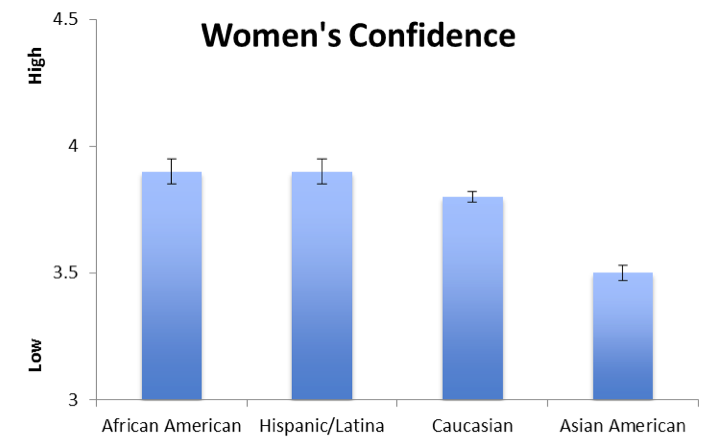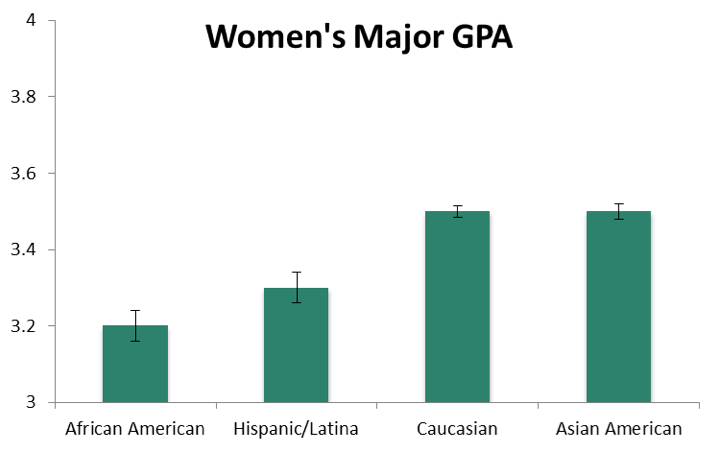Computing Research News
March 2015 Vol. 27/No. 3
Disseminating CERP Research Findings to Promote Diversity in Computing and Other STEM Fields
By Jane Stout, CERP Director
 Two years since its inception, CRA’s Center for Evaluating the Research Pipeline (CERP) has proven to be a valuable resource for the computing community. CERP’s benchmark survey research mechanism, the Data Buddies Project, generates reliably large and diverse datasets pertaining to computing students’ experiences in their degree programs. CERP’s data had originally been slated primarily for “comparative evaluation” purposes; students’ experiences gleaned from survey data are pitted against each other as a function of whether or not they have participated in a given professional development program. Since August 2014, CERP’s data have been harnessed for a second purpose, which is to conduct basic social science research on issues of diversity of computing. This new focus is supported by a new grant awarded to CRA: NSF DUE-1431112, Promoting a Diverse Computing Workforce: Using National Survey Data to Understand Persistence Across Undergraduate Student Groups, which was written and is overseen by CERP Director, Jane Stout.
Two years since its inception, CRA’s Center for Evaluating the Research Pipeline (CERP) has proven to be a valuable resource for the computing community. CERP’s benchmark survey research mechanism, the Data Buddies Project, generates reliably large and diverse datasets pertaining to computing students’ experiences in their degree programs. CERP’s data had originally been slated primarily for “comparative evaluation” purposes; students’ experiences gleaned from survey data are pitted against each other as a function of whether or not they have participated in a given professional development program. Since August 2014, CERP’s data have been harnessed for a second purpose, which is to conduct basic social science research on issues of diversity of computing. This new focus is supported by a new grant awarded to CRA: NSF DUE-1431112, Promoting a Diverse Computing Workforce: Using National Survey Data to Understand Persistence Across Undergraduate Student Groups, which was written and is overseen by CERP Director, Jane Stout.
CERP staff has been hard at work generating and disseminating preliminary research findings pertaining to underrepresented students’ experiences in the computing community. Findings are “preliminary,” given that CERP initiated a longitudinal research design during the fall of 2014 and has since collected one of many rounds of data from a sample of computing students. The ultimate goals of this research are to track students’ progress over time, measure antecedents to students’ successes, and generate Best Practices that departments can use to ensure underrepresented groups thrive in computing.
One line of inquiry focuses on women’s experiences in computing, with special focus on how women’s cultural background factors into those experiences. For instance, Asian American women report that they are less confident in their computing abilities than other women in computing (see Figure 1), despite the fact that Asian American women are among the top performers in their female peer group (see Figure 2). Research of this nature shines a spotlight on a specific group of talented students in computing who are relatively lacking in confidence; longitudinal data has the potential to assess whether and how these students overcome low confidence and succeed in computing. Stout has shared these and similar preliminary findings during invited presentations at prominent research institutions such as the Massachusetts Institute of Technology (MIT) and the Colorado School of Mines; at smaller institutions interested in fostering diversity, such as Augustana College and Millikin University; and departments outside of computing also suffering from low diversity (e.g., Physics Department, University of Colorado Boulder).

Figure1. Women's confidence that they can succeed in computing as a function of their ethnic background. Scale ranged from (1) Low confidence to (5) High confidence.

Figure 2. Women's GPA in their computing major as a function of their ethnic background.
CERP staff are also sharing research findings with professional societies at conference venues. For instance, CERP Research Associate, Ama-Nyame Mensah will present research at the 2015 SIGCSE meeting (Computer Science Education SIG) suggesting that Research Experiences for Undergraduate Students (REUs) are more beneficial for students from underrepresented groups than well-represented students in computing. Heather Wright, CERP Research Associate, will present findings at the 2015 meeting of the Association for Psychological Science highlighting the value of creating a welcoming computing department environment, particularly for first generation college students.
CERP’s audiences for dissemination of research findings are intentionally diverse; they include educators and administrators within computing and in other STEM fields lacking diversity. CERP’s research also appeals to social scientists that do not have access to large and diverse data pools made possible by the CRA’s unique Data Buddies Project infrastructure. To find out more information on the Data Buddies Project, and become involved, visit: http://cra.org/cerp/data-buddies.
1828 L STREET, NW SUITE 800, WASHINGTON, DC 20036 | P: 202-234-2111 | F: 202-667-1066




